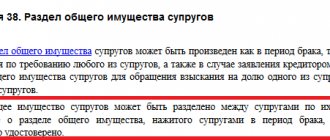Where can Russian gays and lesbians get married?
If you have a foreign passport and the other half, then you can get married legally abroad. For example, a marriage can be registered in the following countries: Cyprus
, Austria, Great Britain, Belgium, Denmark, Norway, Sweden, Iceland, Ireland, Holland, France, Finland, Germany, Portugal, Czech Republic, Slovenia, Croatia, Luxembourg, Liechtenstein, Spain, Switzerland, Israel, New Zealand, Canada, South Africa, Argentina, USA, Mexico, Brazil.
The simplest and most convenient place for an official marriage ceremony between gays and lesbians is Cyprus.
To get married here it is not necessary to have citizenship of Cyprus or the European Union, to be a resident or to have a residence permit.
According to the Law on the Legalization of Same-Sex Marriage (adopted on November 26, 2015, published on December 09, 2020, entered into force on January 18, 2020), gay and lesbian
will be able to formalize marital relations.
A civil partnership has the same effect (except where the Adoption Act applies) as if the marriage had been solemnized under the provisions of the Marriage Act, and any reference in the law of the Republic to "spouse" shall be construed as a reference to " partner" in a civil partnership. The law does not determine the gender of people who wish to enter into a civil partnership.
The procedure for registering a marriage between gay spouses will be no different from that for traditional couples. An official marriage certificate is issued on the day of marriage registration.
The couple will not wait for any application deadlines and will not stand in line.
Our company takes care of all the hassle of organizing and conducting the marriage registration ceremony.
What marriages are prohibited in Russia
Commentary on Article 14
This article establishes the circumstances that prevent marriage. The article provides 4 conditions under which marriage is not allowed. In accordance with the provisions of the commented article, marriages between:
- persons of whom at least one person is already in another registered marriage;
- close relatives (relatives in a direct ascending and descending line (parents and children, grandfather, grandmother and grandchildren), full and half (having a common father or mother) brothers and sisters);
- adoptive parents and adopted children;
- persons of whom at least one person has been declared incompetent by a court due to a mental disorder.
If the above circumstances exist, the head of the registry office may refuse to register the marriage. However, such a refusal can be appealed in court.
1. According to Part 1 of this article, marriage is not allowed between persons, at least one of whom is in another registered marriage. Another marriage means an ongoing or undissolved registered marriage.
Persons who have been married can register a new marriage only after presenting documents confirming the termination of the previous marriage. Confirmation of the termination of a previous marriage is: a death certificate of the spouse (in these cases, a note is not made in the passport), a certificate of divorce (if for some reason the divorce is not stamped in the passport), a court decision declaring the marriage invalid. At the same time, being in an actual (unregistered) marital relationship is not an obstacle to registering a marriage, no matter how long it lasts. However, the actual termination of the marital relationship (if the marriage is still registered but not dissolved) entails the recognition of the new marriage as invalid.
The Russian Federation enshrines the principle of monogamy, or monogamy, according to which only one man and one woman can be married, that is, bigamy and bigamy are prohibited. Polygamy is traditionally associated with eastern countries; it allows a man to be married to several women at the same time.
2. Marriage is not allowed between close relatives (relatives in a direct ascending and descending line - parents and children, grandparents and grandchildren; between full-blooded (having a common father and mother) and half-blooded (having only one parent in common) brothers and sisters) . The legislative ban is dictated, first of all, by concern for the health of future children and the prevention of the birth of defective offspring. It has been established that consanguineous marriages lead to a higher percentage of hereditary diseases and developmental defects in children. For example, the number of births with Down syndrome and severe pathology in families where spouses are cousins is 2 times higher than in ordinary families. And the proportion affected by schizophrenia among first-degree relatives is 1 in 105.
From the content of the commented article it also follows that marriage will be hampered not only by marital, but also by extramarital kinship of the same degrees. And not only when it is established in the manner prescribed by law (Articles 49 - 51 of the RF IC), but also in the absence of such.
In the Russian Federation, marriages of relatives are allowed, starting with cousins. This is not a very good legislative solution. It is known that in many countries of the world the list of prohibitions on marriage with relatives is much longer than in the Russian Federation, and the basis for such a list is one thing - concern for the new generation. It is known that modern humanity has accumulated many chronic diseases, and if a child has both parents of the same blood, this doubles the possibility of inheriting one or another disease. Thus, the next generation degenerates. It is worth recalling that in France, for example, not only an extensive list of relatives, but even former in-laws are prohibited from marrying. And in-laws are members of the same family who are not related by common blood, for example, daughter-in-law and father-in-law, mother-in-law and son-in-law.
Unfortunately, modern family legislation of the Russian Federation has not made any changes to this list of restrictions, although proposals have been repeatedly made in the legal literature to expand the number of prohibitions for biological and ethical reasons.
Such marriages contradict our moral ideas (the prohibition of marriage due to consanguinity is also associated with categories of moral order), not to mention the negative consequences resulting from incest.
3. For the same moral and ethical reasons, the Family Code of the Russian Federation prohibits marriages between adoptive parents and adopted children, since by virtue of the law their relationship is equated to the relationship between parents and children by origin. Consequently, this prohibition will also apply to marriages between stepfather and stepdaughter, stepmother and stepson, provided they are formalized properly.
At the same time, marriages between half-brothers and sisters (children of each spouse from a previous marriage), as well as relatives (each spouse is in a relationship with the relatives of the other spouse, as well as relatives of the spouses among themselves) are not prohibited.
4. It is not permitted to enter into marriage between persons if at least one of them is recognized by the court as incompetent due to a mental disorder, since the incompetent person cannot be aware of the actions he is performing and control them and, therefore, is not able to express the conscious will to enter into marriage. By establishing such a prohibition, the law proceeds, first of all, from the interests of the incapacitated person. The need to prevent the birth of defective offspring is also taken into account. Mental disorders are usually associated with the presence of various types of mental illness in a person. However, just detecting a mental disorder is not enough. It must be confirmed in a court decision declaring the citizen incompetent. In the absence of such a decision, one cannot speak of the impossibility of marriage. The person's incapacity must exist at the time of registration of the marriage. If such a court decision was made after the marriage, then it will be a reason for divorce.
Recognition of a citizen - a chronic alcoholic or drug addict - as having limited legal capacity in accordance with Art. 30 of the Civil Code of the Russian Federation, although the danger for future offspring of having children from the marriage of persons, at least one of whom suffers from chronic alcoholism or drug addiction, is obvious and confirmed by medical statistics.
By the way, in many states, persons recognized as mentally incompetent in remission can marry. This is certainly a humane rule. However, it is not used in the Russian Federation.
Legalization (Apostille) of a marriage certificate between men or women
Legalization of a marriage certificate is carried out by our company by affixing an “Apostille” stamp.
This certificate (same-sex marriage certificate) with Apostille will be recognized in all countries that have signed the Hague Convention, including Russia, Ukraine, Belarus, Kazakhstan, Georgia, Armenia and so on.
But it is not yet possible to obtain a Russian-style marriage certificate on the basis of a Cypriot certificate, since according to Russian legislation, marriage within the Russian Federation can only be between a man and a woman.
But in other countries such a marriage is recognized and therefore, for example, when dividing property
or in the event of
acceptance of an inheritance or will,
the rights of the spouses arise and are recognized.
Moreover, immigration rules for family members are being simplified.
Thus, having entered into a marriage with a foreigner, a citizen of the Russian Federation, Ukraine, Belarus, Kazakhstan, Uzbekistan, Georgia, Armenia, Tajikistan, Azerbaijan will be able to travel accompanied by a spouse without a visa in the European Union
.
Terms and requirements
Conditions of marriage are mandatory requirements for future spouses that must be met in order for the marriage to be valid. These conditions are as follows:
- persons entering into marriage must voluntarily and consciously express this desire in writing;
- newlyweds must reach marriageable age;
- there should be no obstacles to marriage, which are specified in Article 14 of the RF IC.
You can learn more about all the conditions for marriage from this article.
To enter into a marriage, future spouses must apply to the registry office with a written application, which must indicate that the desire to enter into a union is voluntary and there are no obstacles to this. The marriage procedure takes place one month after submitting the application, with the obligatory presence of both newlyweds.
We talked about where you need to go to register a relationship here, and you will learn about the timing of this registration in this article.
Is same-sex marriage outside Cyprus recognized in Cyprus?
Recognized as a civil partnership under the provisions of this Act: (a) any civil partnership which has been entered into in the Republic in accordance with the provisions of the said Act or in any other country and has come into force, and (b) a corresponding civil partnership entered into outside republic, if (i) the formalities and conditions necessary for its validity under the legislation of the state in which the civil union is concluded are met; (ii) each or one of the civil partners is capable of entering into a civil partnership or civil union insofar as such right is established by the law of the State in which their main place of residence is located.
What is the obstacle?
Obstacles to marriage are legal facts, in the presence of which the conclusion of a marriage union is impossible, and if they are discovered after the marriage, the union is declared invalid in court. The Family Code of the Russian Federation contains a list of circumstances that are obstacles to marriage in Russia.
Are marriages with foreign citizens allowed?
Russian legislation does not contain prohibitions on concluding marriages and dissolving marriages with foreigners.
Civil registry offices of Russia register marriages:
- Russian citizens with foreigners;
- foreigners with foreigners, provided that one of them lives in Russia.
Entering into an alliance with a foreigner is possible when the requirements of the law not only of the Russian state are observed, but also of the state of which the foreigner being married is a citizen.
For example, a Russian man and an Italian woman submitted an application to the registry office to enter into official relations. A marriage between them will be concluded only if this does not contradict the norms of Italian legislation defining the procedure for registering a marriage union.
This state of affairs also applies to Russian citizens who have expressed a desire to marry foreigners on the territory of other states. If, when concluding a marriage outside Russia, the procedure itself was violated, or there were grounds preventing registration, then the marriage in the native country will be declared illegal, and accordingly there will be no legal consequences.
Marriages with foreigners in the Russian Federation must be concluded in the registry office. There are no other locations designated for this procedure. All kinds of traditional and religious rituals to create a family union without visiting the registry office are not considered marriage.
Foreigners who have expressed a desire to enter into a marriage with a Russian citizen are subject to all restrictions prescribed by law:
- the foreigner to be married must not be under 18 years of age;
- he should not have a stamp in his passport indicating an undivorced marriage;
- he must be of the opposite sex;
- he should not be a relative of the second spouse;
- he must be competent and mentally healthy.
If any of the specified circumstances exist, marriage registration will be refused for very understandable reasons. Speaking about the health of the newlyweds, it should be noted that upon entering into a union, newlyweds can be examined free of charge at government medical institutions at their place of residence for genetics and reproduction. The future wife will be informed about the health of the future husband only with the consent of the first. All data from medical examinations constitute medical confidentiality.
If at the time of marriage a citizen knowingly concealed a sexually transmitted disease or HIV from his partner, then by a court decision such a marriage union may be declared invalid.
US states where same-sex marriage is legal
- For a long time in the United States, the existing law on non-traditional marriage was not recognized in all states. Based on this, numerous amendments were made to the original law. Since not all states unanimously approved this legislation, repeated referendums were held.
- However , since 2020, the US Supreme Court decided to lift the ban on the registration of non-traditional marriages in the remaining 14 American states. Thus, this law on the possibility of entering into same-sex marriage is now in effect throughout America.
Allowed in the USA
- Now, among others, you can register non-traditional relationships in the remaining 14 states: Texas, Alabama, Tennessee, Arkansas, South and North Dakota, Georgia, Ohio, Kentucky, Nebraska, Louisiana, Missouri, Michigan and Mississippi.
Countries where same-sex marriage is legal in 2020: list of countries
- Every year, the number of countries that allow same-sex marriage and also recognize the registration of a same-sex union in another country increases.
- Currently this list includes: Spain, the Netherlands, Canada, South Africa, USA, Belgium, Colombia, Portugal, Norway, England, Germany, Denmark, Malta, New Zealand, Australia, Uruguay, France, Iceland, Sweden, partly Mexico, Argentina, Israel (allows registration in other countries), Finland, Luxembourg, Brazil, Slovenia.
- Countries allowing civil partnership : Greece, Czech Republic, Cyprus, Andorra, Croatia, Falkland Islands, Liechtenstein, Switzerland, Austria.
- States allowing same-sex unions among citizens: Estonia, Italy, Hungary, Chile, part of Venezuela, Ecuador.
We hope you find the following articles interesting:
- Pregnancy: signs and superstitions. Signs for an early pregnancy.
- Is it possible to get married in a church during Lent?
- Should I give a second chance to a man, a husband after cheating, a friend?
- Leap year wedding
- 10 flaws in a woman’s appearance that scare away men
Where is same-sex marriage legal?
- Tolerant attitudes towards same-sex marriage are widespread in 44 states. Their main number is concentrated in South and North America, as well as Europe .
- These are countries that support the human right to self-determination - followers of freedom and democracy. These include: Belgium, Finland, Czech Republic, Netherlands, Italy, Israel, Spain, France, Canada, Denmark, Sweden.
Authorized in 44 states
- There are also countries where same-sex marriage is legalized, but with some restrictions in legal possibilities: Hungary, Estonia, Ecuador, Austria, Greece, Switzerland, Cyprus, Croatia, Chile, Andorra, Liechtenstein . In Mexico, such a union is permissible only in half of the country; the Costa Rica region has a controversial status.
Obstacles to a wedding from third parties
If people who dream of becoming a family have fulfilled the conditions contained in Article 12 of the RF IC: heterosexuality, mutual voluntary desire, reaching the age of majority, only the circumstances outlined in Article 14 of the RF IC can disrupt their plans. It often happens that relatives, former lovers of the bride and groom, and other persons for some reason try to upset the upcoming wedding.
If suddenly a third party knows of any circumstances that impede the conclusion of a marriage, it is necessary to inform the head of the registry office about this in writing, attaching evidence. The marriage procedure is postponed during the verification period. If the registry office employees discover legal obstacles to the registration of family relationships, they will cancel the decision to register, guided by Art. 27 143-FZ dated November 15, 1997
Where is same-sex marriage legal in Europe?
- Same-sex marriages are officially permitted in the following European countries: Sweden, the Netherlands, Denmark, Spain, Belgium, Iceland, Norway, Portugal, Malta, Australia, Ireland.
- Some countries have chosen to simplify the registration system for such marriages, but to limit some social rights for them: raising children, receiving inheritance and taxation. Each state chooses these restrictions individually. One of these countries is Germany. In Poland and Italy, same-sex marriages are not persecuted, but are not officially registered.
Same-sex marriage in Germany
Lawyer's answers to questions about marriages between relatives
Can cousins apply for marriage registration through State Services?
Yes. Application through the portal is available, just submit a joint application and wait for acceptance at the registry office. Citizens choose the date and place of registration independently when filling out the electronic application form.
Is it possible to marry your stepsister?
No, family registration at the registry office is not allowed if citizens have the same mother and father.
How is property divided upon the dissolution of a marriage with cousins?
Property is divided according to general rules; kinship is not taken into account. Enter into an agreement or go to court. In the latter case, they will divide equally.
Can minors get married?
Yes, if there are good reasons, it is allowed to create a family with people over 16 years of age: pregnancy, threat to the life of one of the parties. In these cases, you can pick up the certificate on the day of application. In some cases, registration with children from 14 to 16 years old is possible with the written consent of parents and other legal representatives.
How to recognize your brother as the father of a child?
Paternity is established voluntarily by filing an application with the registry office, or forcibly through the court. In the latter case, you will need evidence: witness testimony, audio and video recordings. If the parents are cousins, a DNA test may be ordered. It is ineffective with relatives: the results, regardless of the man’s involvement with the child, will show a relationship.









